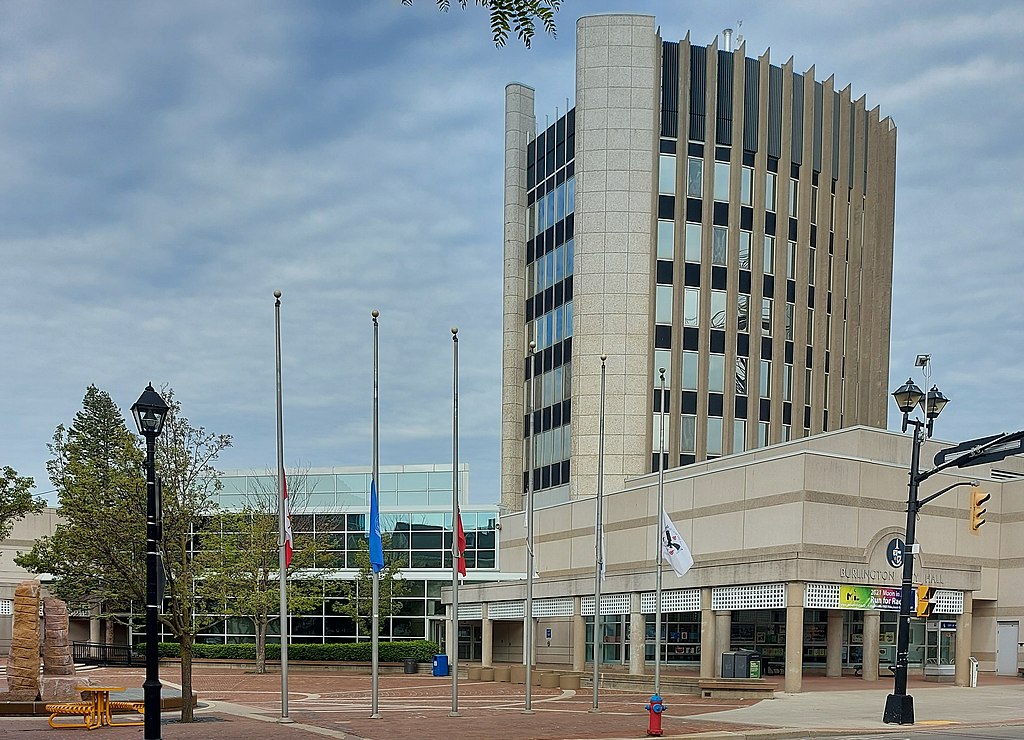Last week, City of Burlington staff sent a report to Mayor Marianne Meed Ward and council members regarding the effects of the Strong Mayors Building Homes Act on the 2024 budget process, which staff and council were already gearing up for, with staff reporting back in June a possible projected tax increase to the tune of 7.8%.
The Strong Mayors Building Homes Act originally gave only the mayors of the cities of Toronto and Ottawa increased power within their municipalities, including the power to hire and fire senior managers, unprecedented bylaw veto powers with regard to the Strong Mayors Building Homes Act and the Planning Act and their regulations “other than any prescribed section,” and “any other prescribed Act or regulation or prescribed section of an Act or regulation,” and direct control over the budget.
As of July 1, 2023, the Strong Mayors Building Homes Act has been extended to 26 other mayors, including Burlington’s Mayor Marianne Meed Ward.
The Sept. 1 staff report outlined the impact of the Strong Mayors Act on the upcoming budget process, and promised another report to come in October to discuss the impact of the other special powers and duties the mayor now has.
The direct control over the budget aspect of the Act means that the budget is now the mayor’s budget. Mayor Meed Ward is now the person to “prepare and propose a budget to Council for consideration” by Feb. 1 of each year, according to the report, though she can direct staff to prepare the draft budget. After the budget is presented by Mayor Meed Ward, council still has the opportunity to amend the budget. Within the ten days that follow, the mayor can veto budget amendments, with council then getting the opportunity to override the mayor’s vetos within the following 15 days. After that, the budget is “deemed to have passed.”
The main change is in the mayor’s direct stewardship of the budget: only the mayor has the authority to propose the annual budget. The timing of the process is only very slightly changed from last year.
The opportunities for public engagement have not decreased: the city currently has an open survey for Burlington residents and business owners to tell the city what services are most important to them. This survey is open until Sept. 22, 2023, after which the results are presented to council to aid in prioritization. The survey is available on getinvolvedburlington.ca or by clicking here. There will also be a Food for Feedback community barbeque event on Saturday, Sept. 16 from 12:00 p.m. to 4:00 p.m. at Central Park (2299 New St.). This city-hosted event invites attendees to talk to city staff and members of council on such topics as the 2024 budget, the Official Plan, Burlington Transit, and more, with a free lunch from a food truck in exchange for discussion and input.
It remains to be seen how this will be applied in the City of Burlington and how this will affect the work of Deputy Mayor for Strategy and Budgets and Ward 5 Councillor Paul Sharman. The city still intends, he says, to hold meetings in September with each city department reporting on their key performance indicators, their 5-year goals, what resources are required to meet those goals, and the gaps between their current performance and meeting those goals, all with the aim of informing the mayor, council, and the public on current service performance and to inform the future of providing services in terms of level of service, and cost to the city and public (by way of taxes). Sharman notes that it was a hard fight to come up with their existing budgeting process, “which is more sophisticated, and more useful in making sure we have a good understanding of the resources required to run the city and provide good services to the community.”
When asked to comment on this new report, Sharman notes that the mayor and council have not yet had a chance to discuss this report; that is on the agenda for Sept. 11.
Burlington residents will likely be very interested to hear more about the 2024 budget given the forecast of even higher tax increases than last year. The report details the reasons behind this projected tax increase, including the fact that the city is still working to “catch up” city services and amenities in the wake of population growth and the more recent pressures of higher-than-average inflation rates (read the report here). Sharman believes that staff is on the right path with the projected 7.8% tax increase. In his recent newsletter, this is what Sharman had to say (reposted here with permission):
Why what they’re proposing is probably in the right order
In the next three months, Council and City of Burlington staff are preparing to make decisions about the 2024 budget. As some of you are already aware, we are facing another tough budget. Staff have projected the possibility of a 2024 property tax increase in the order of 7.8%, which follows the 2023 increase of 7.5%.
Council members are all fully aware of the impact of cost increases of the City and the potential impact to all homeowners. Indeed, we are very sensitive to the potential impact on a proportion of community members who will be most challenged by such increases. No budget or tax proposal would be prepared without sincere and respectful recognition of the needs of the City, its community members and critical services that need to be delivered, without which our ability to provide important services diminishes.
Previous Councils and City staff have worked hard to control cost increases. In 2011, we established a headcount limit to ensure we did not surpass the employee count from 2010. We also reduced annual salary raises to align with inflation, applying this change to the entire municipal payroll. Each year, both department managers and the finance department have diligently conducted comprehensive reviews of all budget line items to achieve cost reductions. No stone has been left unturned.
The result has been that staff numbers have been functioning at below good operational levels, with inadequate training and support staff. In 2017, we began to experience major failures due to inadequate staffing and funding. At the same time, our competitive position versus other surrounding municipal employers became less attractive due to the cumulative impact of the 2011 salary and headcount caps. Indeed, many staff left the City to work in other municipalities and it was tough to attract replacement employees.
In 1990, Council declared zero tax increase for 7 consecutive years. That had the effect of reducing property taxes for community members to levels that are below surrounding municipalities, and reducing funds to pay for roads, buildings and information systems maintenance/renewal. The result of which is that Burlington now has a $500 million deficit, which is causing the City to increase its annual budget by 2% a year, every year going forward, before any other considerations such as inflation (4% this year). At the same time, Burlington information technology (IT) systems date back to approximately 1990 and have been hopelessly holding back any opportunity to modernize City operating processes. The City is presently having to update all of its IT systems to the tune of $20m plus ongoing operating costs to support the new systems.
Of note, Burlington enjoyed considerable population growth prior to 2015. Such growth is facilitated by the construction of new homes, which of course leads to growth in the tax base. We refer to that as “assessment growth,” or simply more revenue without increasing taxes. In 2015, basically, Burlington ran out of green fields on which to build new housing sub-divisions, leaving a much slower development of “infill” in our existing communities, such as condominium towers, which have become highly controversial.
Added to all of the above, Council has made every effort to minimize tax increases by, to some degree, drawing on reserve accounts the City retains, which now float at the lower end of recommended levels.
Finally, many City staff were approaching retirement age prior to Covid. Following Covid, when many people retired in industries across Canada including Burlington, the City was faced with having to hire hundreds of replacement employees. Unfortunately, the circumstances I described above have made it very difficult to hire people. Many potential employees preferred to work in other industries and municipalities. Accordingly, in the 2023 and 2024 budgets Burlington has been forced to correct salaries to be able to hire new employees and retain existing ones.
Putting that all together, Councils and staff have done everything that can be done to hold back otherwise vital tax increases for at least the last 30 years. This has resulted in us having one of the lowest municipal property tax regimes in the GTHA.
The problem is, after constraining necessary and reasonable tax increases, the City finds itself in the situation where it can no longer defer or “feather in” necessary tax increases. As they say, our chickens have come home to roost.
We are deeply concerned about all our community members and their ability to pay taxes. Accordingly, the City offers a service to allow low-income homeowners to defer property taxes, interest free, to be repaid upon sale of the property.
Please be certain that neither this Council nor any preceding one has made any budget decision that they did not sincerely believe represented the needs of the community. Now we are obliged to respond to changing circumstances and prepare for the future.




